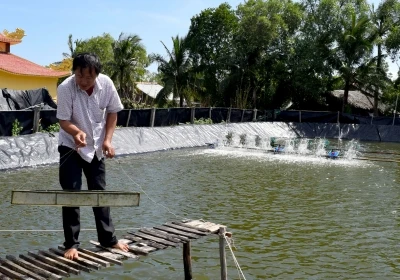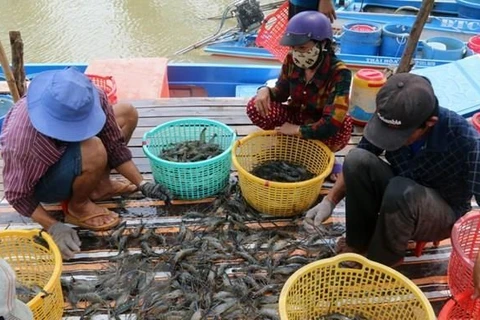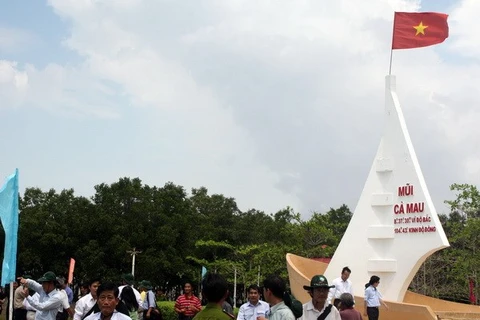Ca Mau (VNS/VNA) - The Department of Agriculture and Rural Development of the southern province of Ca Mau has amended its list of key agricultural products, deleting two from the original list and keeping shrimp, mud crab, high-quality rice, and wood.
A plan to restructure agriculture nearly five years ago had listed the four along with banana and dried snakeskin gourami.
But after problems arose, the department decided to excise the two items from the list.
Now the country’s southern-most province will focus on investing in the four products to add value and fully exploit their potential.
Le Van Su, deputy chairman of the province People’s Committee, said investment in the four products should be expanded but with conditions in each locality kept in mind.
The investment should focus on building brand names and transferring advanced farming techniques to farmers, he said.
In the five years of implementing the restructuring plan, the agricultural sector has achieved high growth and an optimal structure, according to the department.
The sector has been growing at an average annual rate of 4.3 percent in the period.
The average annual income per hectare now is 90 million VND (3,877 USD), which was the target, the department said.
The province, the country’s largest shrimp producer, has expanded several efficient shrimp farming models such as intensive farming and super-intensive farming.
It has established shrimp farming areas that meet local and international quality standards like Vietnamese good agricultural practices (VietGAP), Aquaculture Stewardship Council (ASC) and Selva Shrimp.
The province has more than 300,000ha of aquaculture ponds, including 280,000ha of shrimp farms.
It targets exports of around 1.2 billion USD worth of shrimp this year.
At many shrimp farms, farmers also breed other aquatic species like mud crab.
Nam Can district, for instance, has 25,600ha of ponds where shrimps are bred with mud crabs.
The province’s mud crabs are well known for their quality, popular around the country and exported to several countries.
Ca Mau plans to develop organic rice farming and large-scale rice fields, and encourages companies and farmers to link up to ensure the latter have guaranteed outlets for their produce.
It will also develop cajuput and acacia forests.
There are already around 8,5000ha of acacia forests, mostly in U Minh and Tran Van Thoi districts, according to the department.
Acacia farmers earn more than 100 million VND (4,307 USD) from a hectare four or five years after planting by selling the wood.
Nguyen Tran Thuc, head of the province’s Plant Cultivation and Protection Sub-department, said the province would restructure rice production and develop linkages between rice co-operatives and companies.
The grain will be grown based on demand from the companies, he said. — VNS/VNA
VNA























